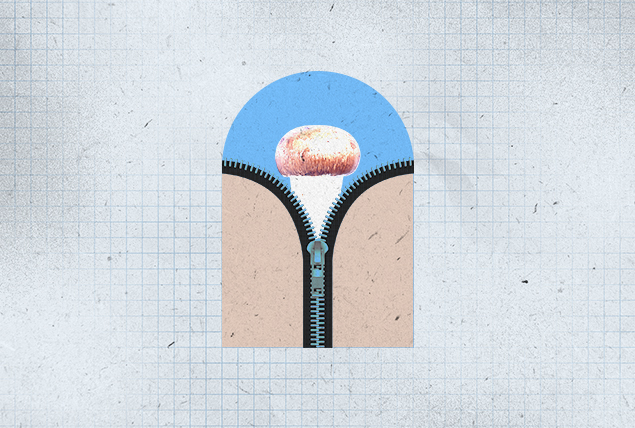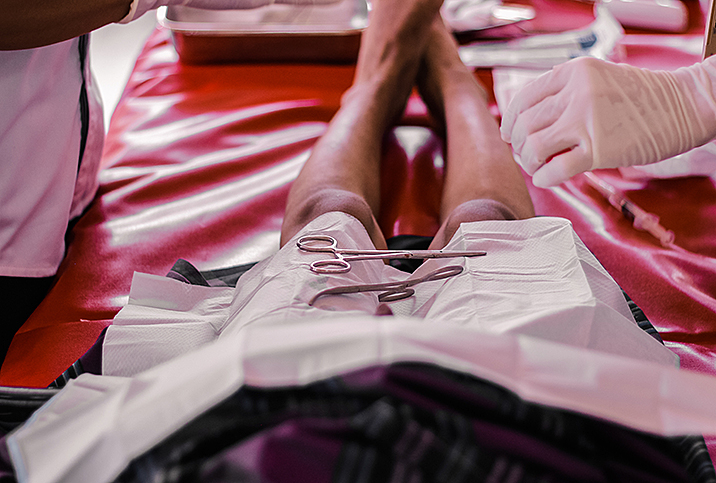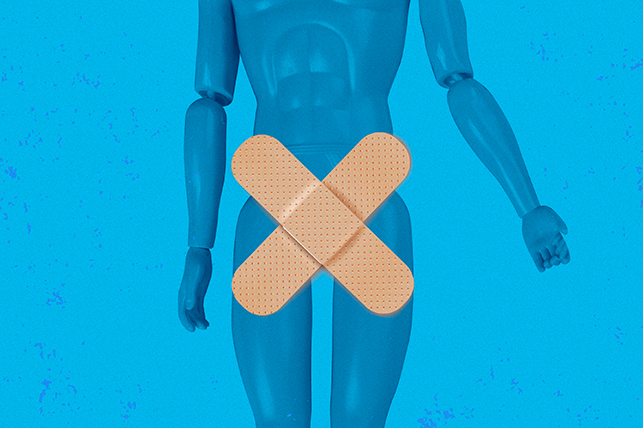Balance the Risks and Benefits of Circumcision

Circumcision is an ancient cultural and religious practice dating back thousands of years and spanning the globe.
The practice, which removes the foreskin that covers the head of the penis, continues into the present day among various groups, notably, Muslims, Jewish people and more than 70 percent of the male population in the United States.
More than 1.4 million circumcisions are performed annually in U.S. medical settings, making it the third-most common inpatient procedure.
Today, the circumcision procedure has become so routine, relatively painless and nondisruptive that even people who aren't bound by religious or cultural standards are choosing it. That's not to mention those who are swayed by evidence that circumcision may offer significant protection against sexually transmitted infections (STIs), including HIV.
People get circumcised for many reasons. Everyone considering it for themselves or an infant should examine the risks and benefits of getting the procedure done.
Risks of circumcision
Life entails risk, and certainly, going under the knife for any surgical procedure is never risk-free. But as practiced in modern medical facilities, circumcision is a very safe procedure.
Standard risks include the following:
- Bleeding
- Infection
- Negative reaction to anesthesia
- The foreskin being cut too short or left too long
- Pain
- Meatitis or meatal stenosis (inflammation of the penis opening, causing it to narrow)
- Preputial adhesions (the remaining skin of the shaft adhering to the penis head)
Just to be clear, a bit of bleeding and mild pain for a few days after a circumcision is to be expected. You've just had a slab of skin from the most sensitive part of your body removed, after all, and likely a minimum of four sutures added.
The rest of the complications are exceedingly rare, however. For instance, one study looked at 5,882 neonatal circumcisions done with the popular Plastibell and Gomco devices. Researchers found only 0.2 percent of the circumcised babies had any complications at all.
But certain complications can arise while the penis is healing.
Meatal stenosis
Meatal stenosis, or the narrowing of the urethral opening, is thought to result from the penis head becoming irritated over time and scar tissue building up. It's relatively uncommon among adults and teens who get circumcised, but in infants, it's more frequent.
Preventing that irritation from getting too pronounced in the first place can make a big difference.
"One of the risks is a narrowing of the opening that you pee out of," said Amanda North, M.D., the director of urology at the Children's Hospital at Montefiore in the Bronx, New York. "We think that's because when we separate the foreskin from the head of the penis—in many uncircumcised children, there are still adhesions between the foreskin and the head of the penis—it can be a little bit raw afterward. And if that rubs on the diaper, it can cause scarring and narrowing. A greasy barrier [such as bacitracin or Vaseline] can help prevent that meatal stenosis."
Sensitivity
As more older teens and adult men opt for circumcision, they're finding out that exposing a penis head which was previously covered by foreskin can be excruciatingly sensitive. Just as with infants, teens and adults can apply a generous layer of protective gel such as bacitracin, Neosporin or plain old Vaseline to the penis head for some relief, North said.
She has even learned a trick or two from her patients.
"That penis head has never touched anything before, so putting grease over the head of the penis prevents it from rubbing against the underwear," North said. "Some parents say their kids will walk around naked because they don't want anything touching the head of the penis. It just takes a few weeks for that skin to get used to touching things and for that sensitivity to improve. One of the dads told me he got his son a sports cup to wear inside his underwear. It provides like a little tent so that it's not touching anything."
Sexual activity
It may be the first question older patients considering circumcision ask: How long will I have to wait before I can have sex again? The answer is it takes a little while for that incision to heal properly. Most of the medical literature recommends waiting a minimum of four to six weeks before having sex or masturbating.
However, for North, it's more about how the healing is going rather than a strict time frame.
"If you pop a couple of sutures and your incision hasn't healed completely, I strongly recommend waiting because you're at risk," North said. "It's not uncommon in adults and older teenagers who get nocturnal erections to pop a couple of stitches. For me, the criteria is the sutures should dissolve and the wound should look healed. That, to me, is more important than how many weeks."
Don't take those words lightly. The consequences can be dire if you vigorously thrust your not-yet-healed penis into a dark, warm place that is likely to contain bacteria. We're talking about the possibility of a return engagement with your surgeon—and maybe even skin grafts.
"I had a teenager many years ago who decided to test-drive his new penis way earlier than he should have," North said. "And the entire thing fell apart, all of his sutures. We had to take him back to the [operating room]. I've had two patients in 15 years whose sexual activity required a trip back to the OR, and I do probably 250 circumcisions a year."
Benefits of circumcision
The primary upside of circumcision would have to be the broad category of health benefits. One systematic review of 82 relevant papers showed that circumcised men are at lower risk of contracting STIs, including HIV. What's more, circumcised men put their female partners at lower risk of contracting the human papillomavirus (HPV), which is linked to cervical cancer.
Other health benefits of circumcision include a reduced risk of penile disorders such as balanoposthitis, penile cancer and urinary tract infections (UTIs), according to Cleveland Clinic. Yes, men get UTIs.
It's also notable that while an uncircumcised penis is not inherently dirty, being circumcised may make regular cleaning and maintenance easier.
Other benefits include helping people who have issues with the way their bodies look before circumcision. For people who have emigrated to the U.S. from a country where circumcision isn't common, the desire to look like everyone else can be a strong driving force.
"In the Bronx, where I work, more commonly, it's that the sexual partner prefers them to have a crewneck to a turtleneck," North said. "I think some of the girls think that it's cleaner to not have a foreskin, and given teenage boy hygiene, there's probably some accuracy to that."
Conclusions
Like any surgical procedure, circumcision is not without risk. However, with modern techniques and protocols, it's a very safe procedure with a relatively easy recovery; plus, circumcision offers health benefits.
It may not be for everyone, but circumcision is available and easy to do for most people at any age, as long as you take your time to consider all the angles, consult with loved ones and talk with your healthcare specialist about it first.
If you're an adult considering circumcision but you don't have a regular physician, taking the first step can seem difficult. Giddy Telehealth takes the difficulty out of the search. The easy-to-use online service provides access to hundreds of healthcare professionals who have expertise across the full scope of medical care. Many of them specialize in men's health and offer same-day video visits.
You'll obviously need to visit an office to take matters further, but that will be simpler with a foot in the door.


















